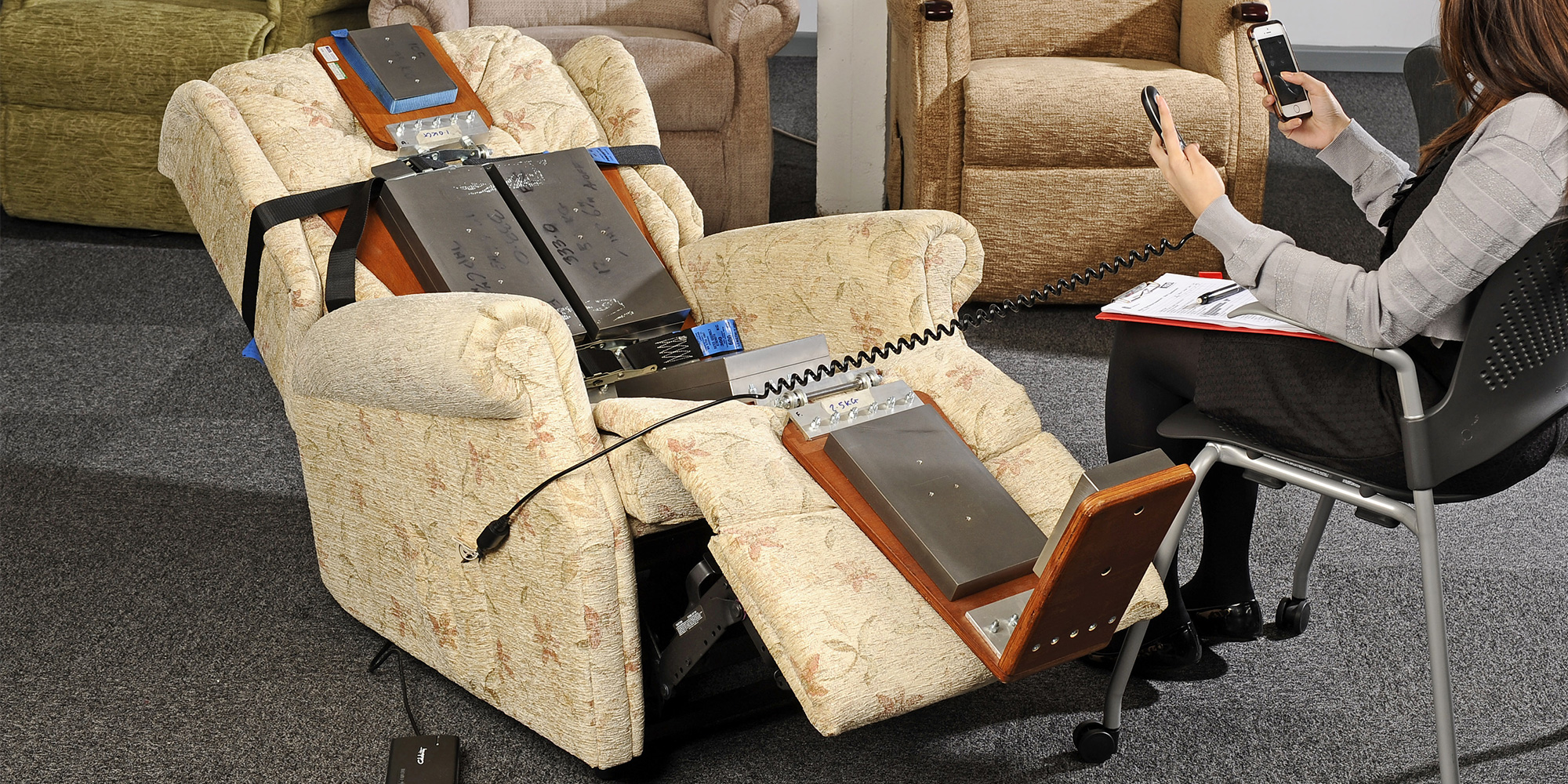DIN EN 12520 Household Reclining Seating Safety Requirements Testing
The DIN EN 12520 standard provides essential requirements for household recliners and adjustable seating to ensure they meet safety criteria. Compliance with this standard is crucial for manufacturers, as it helps protect users from potential hazards associated with the use of such furniture.
Reclining seats are a popular feature in living rooms, bedrooms, and offices due to their comfort and versatility. However, improper design or manufacturing can lead to accidents, especially when used by elderly individuals or those with mobility issues. The standard addresses various aspects including mechanical stability, load distribution, and resistance against tipping over.
The testing procedures outlined in DIN EN 12520 are designed to evaluate the structural integrity of recliners under different loading conditions. This includes static loads applied at specified points on the seat backrest and armrests as well as dynamic tests simulating actual usage scenarios like folding mechanisms or reclining motions.
Manufacturers must ensure that their products comply with all relevant clauses before bringing them to market. Non-compliance could result in recalls, legal action, and damage to brand reputation. By adhering strictly to these standards during development stages, companies can minimize risks while maintaining high quality standards.
To perform DIN EN 12520 testing accurately requires specialized equipment capable of replicating real-world situations experienced by end users. Our laboratory uses state-of-the-art facilities and experienced technicians who adhere meticulously to the specified procedures outlined in the standard.
Our team works closely with clients throughout the entire process, from initial consultation through final reporting stages ensuring smooth integration into any existing workflow or project timeline. We offer comprehensive testing services tailored specifically around DIN EN 12520 requirements along with detailed analysis and recommendations based on our findings.
Eurolab Advantages
At Eurolab, we pride ourselves on delivering top-notch quality assurance solutions across various sectors including furniture testing. Here are some of the key advantages that set us apart:
- State-of-the-art facilities: Equipped with cutting-edge technology and machinery to conduct precise tests.
- Experienced professionals: Our team consists of highly skilled engineers and technicians who have extensive knowledge in their respective fields.
- Comprehensive service offerings: From product design consultation to final production validation, we cover every aspect of your project lifecycle.
- Fast turnaround times: We understand the importance of timely delivery and strive to meet deadlines without compromising on accuracy or reliability.
Choose Eurolab for all your testing needs; you will be pleased with our commitment to excellence and customer satisfaction.
International Acceptance and Recognition
DIN EN 12520 is widely accepted globally as one of the leading standards when it comes to ensuring safety in household recliners. Its widespread adoption reflects its significance within both industry circles and regulatory bodies worldwide.
Countries across Europe, North America, Australia, and Asia have incorporated DIN EN 12520 into their national regulations or guidelines for furniture manufacturing practices. This harmonization facilitates trade between countries by reducing barriers caused by differing standards.
Companies operating internationally benefit greatly from having compliant products since they avoid costly rework due to non-conformance with local requirements. Additionally, adherence to international standards enhances credibility among consumers who value safety above all else when purchasing furniture items.
Environmental and Sustainability Contributions
The pursuit of sustainable practices extends beyond just manufacturing processes; it also encompasses the materials used in products themselves. In the case of DIN EN 12520 compliant recliners, manufacturers often opt for eco-friendly options which not only reduce environmental impact but also appeal to environmentally conscious consumers.
For instance, using recycled fabrics or sustainable wood sources can significantly lower carbon footprints associated with product lifecycle stages. Furthermore, energy-efficient production methods contribute towards reducing overall emissions during manufacturing operations.
By choosing DIN EN 12520 compliant recliners made from responsibly sourced materials, consumers play an active role in promoting environmental stewardship and supporting sustainable business practices.





